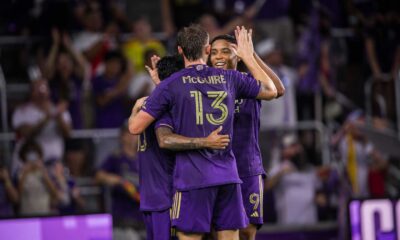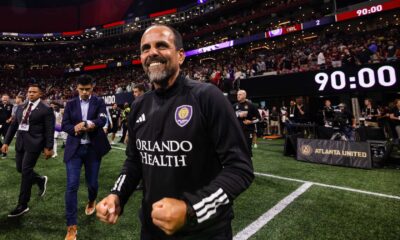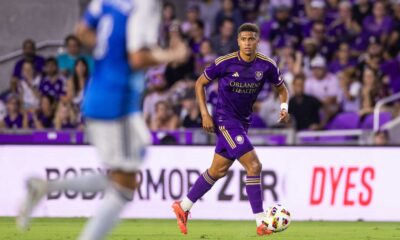Orlando City
Orlando City vs. Inter Miami: Final Score 0-0 as Lions Get Second Straight Result
In a defensive struggle, the Lions and Herons couldn’t produce a winner in a game that ended scoreless.

Orlando City and Inter Miami played to a scoreless draw in front of a sellout crowd of 25,046 at Inter&Co Stadium that looked every bit the part of two teams playing on short rest. Each side created only a couple of good looks at goal and the goalkeepers took center stage for the few chances that were generated, while the back lines of both teams cleaned up everything else.
Inter Miami (8-2-4, 28 points) has still never won a road game against Orlando City (3-5-4, 13 points), as the Lions are now 2-0-5 in the City Beautiful against their Tropic Thunder rivals. Lionel Messi, who was listed as questionable on the availability report, did not dress for the match and still hasn’t played in Orlando since coming to MLS.
“A very level game,” Orlando City Head Coach Oscar Pareja said after the match. “I thought we found two teams that both had options. They could have scored at the beginning of the game, and then through the game we had our options too. We have the sensation that we could have walked off the field with three points, but we have to recognize that was a very tight game for both teams. The effort from the players was extraordinary and we keep on adapting to new things. I’m good with the performance of the team. I think we’re going in a good direction, I think we’re turning things around, and played against a good team who has good momentum. But today, as I say, we could have walked off with three points.”
Pareja went back to a 3-5-2 after it was successful in Philadelphia Saturday, with goalkeeper Pedro Gallese behind a back line of Rodrigo Schlegel, Wilder Cartagena, and David Brekalo. Ivan Angulo and Facundo Torres played wingbacks outside of a midfield group of Nico Lodeiro, Cesar Araujo, and Martin Ojeda, with Luis Muriel and Duncan McGuire up top.
Miami started by holding a lot of the early possession and quickly created a couple of excellent opportunities. Just moments after the opening kickoff, Luis Suarez got inside of Brekalo and fired a shot from the left toward the right post. Gallese went to ground and made a huge save to keep the game scoreless.
Franco Negri then was able to sneak in behind the defense in the seventh minute down the left flank. He centered the ball for Robert Taylor, who fired with his first touch. Brekalo got in front of it to block it and Orlando was able to clear the danger.
“Honestly, I was anticipating that the pass was going to be cut back. I thought at that moment that it’s an offside — I still didn’t see that clip — so if it wasn’t, it was it was a good block and well done by me,” Brekalo said with a smile.
The Lions finally produced some chances starting in the 14th minute. Muriel took a free kick outside the penalty area on the left and sent it to McGuire at the near post. The flick was just wide of the upright and hit the outside netting. A minute later, Torres was able to get to the end line, but his cross for Angulo was caught by Drake Callender.
McGuire tried a volley shot off a high cross in the 17th minute but it was deflected out by the defense for an Orlando corner. The cross in from Lodeiro on the set piece was just over Torres’ head at the back post and went harmlessly out for a goal kick. Seconds after that, Orlando took possession and Torres had a go from the top of the area with his right foot but he just missed the top right corner.
Cartagena did well in the air to deny a ball into the box intended for Suarez, conceding a corner, but Miami could do nothing with it.
Orlando’s best chance of the first half came in the 32nd minute. Muriel threaded the needle at the top of the penalty area to send a ball in for Ojeda. The Argentine immediately turned and shot, but Callender did well to get down and make a diving, one-handed save.
A minute later, Callender made another huge save to deny a Muriel shot from the top of the box.
Matias Rojas went for goal in the 35th minute on a free kick conceded by Schlegel near the right corner of the box. Gallese tipped the shot over the bar, and Orlando was able to clear the subsequent corner.
The last look at goal in the first half came in the 41st minute when Marcelo Weigandt jumped into the play from his right back spot. He fired from the top of the area but missed the target badly to the left.
Orlando City finished the first half with the adantage in shots (8-4), corners (4-2), and passing accuracy (88.6%-88.2%). Miami had more possession (50.6%-49.4%) and shots on target (3-2).
Neither side generated much offense in the second half, and it got worse as the game progressed, as tired legs caught up to both teams after each played on the road Saturday.
Each team won an early corner in the second half but couldn’t do anything with it as the game settled into a chess match between the penalty areas. Gallese had a scary moment near the hour mark when going high to catch an entry ball from Rojas. Suarez hit the keeper while he was vulnerable and Gallese went down hard and needed the trainers to come on. After a delay, he was able to continue.
Orlando had some of the best transition chances of the second half but could not execute in and around the box. Ojeda failed to get a cross through in the 69th minute on the first of those promising attacks. Muriel started multiple attacks with his footwork, drawing a yellow card on Taylor after dispossessing the Miami winger and being pulled back by his shirt. Later, he took the ball from Sergio Busquets. It looked clean, but the referee called a foul on the Colombian and he was booked after kicking the ball away, angry about the whistle.
Miami’s best chance for a second-half goal came in the 74th minute when a ball from the visitors’ left was sent in front by second-half substitute Jordi Alba. If the pass had reached fellow sub Leonardo Campana, Miami would almost certainly have scored and probably would have won the match, however, Cartagena did well to clear the danger before it could get through.
A minute later, Muriel sent Angulo down the right channel, but the speedy wingback sent his cross straight at Callender, wasting the opportunity. Two minutes later, the Lions broke with numbers. Torres picked out Muriel, but the pass allowed the defense to recover somewhat and when the striker tried to put a move on to free up a shot, he lost control of it and the chance evaporated. Muriel then sent a shot just wide in the 79th minute.
Second-half sub Dagur Dan Thorhallsson marauded down the right flank in the 88th minute but sent his cross/shot into the outside netting.
During the six minutes of injury time, Yutaro Tsukada, one of the team’s 2024 MLS SuperDraft picks, made his MLS debut, coming on for Torres. Tsukada had the chance to play the role of the unlikely hero late, as a ball in the air fell for him in the box. He fired, but hit his shot into the ground and it missed the target on what was the last kick of the ball.
Orlando City finished with the advantage in shots (14-7) and corners (8-4), while Miami held more possession (58.7%-41.3%) and passed more accurately (90.0%-86.6%). Each team officially put three shots on target.
First-place Inter Miami didn’t have Messi, but that takes nothing away from a strong defensive performance by Orlando City. It was just the second time all season the Herons have been shut out, and tonight’s match snapped a run of five consecutive games in which Miami had scored three or more goals.
“Keeping our goals (against) at zero today was a great positive thing for us,” Pareja said. “Again, adapting players to different movements and absences of players who have been regulars…we looked good. That part is positive.”
One of the key reasons for the clean sheet was the play of Cartagena, who may have been the team’s best center back on this night.
“It was a difficult game,” Cartagena said. “Obviously to mark a player like Suarez is very difficult, very complicated, especially with the player that he is and the way that he likes to move, but I think as a group we did a great job defensively. With Rodri, with David, we were really solid and compact. Obviously, we’d love to take a win from today, but I think overall, taking that draw, we feel good about tonight.”
The Lions have another quick turnaround with a match on the other side of the continent Saturday night when they visit the San Jose Earthquakes at 10:30 p.m.
Orlando City
Orlando City’s Offense Off to Good Start in 2024 Playoffs
A look at Orlando City’s playoff scoring, or lack thereof, over its MLS years and an evaluation of whether this playoff run will be better.
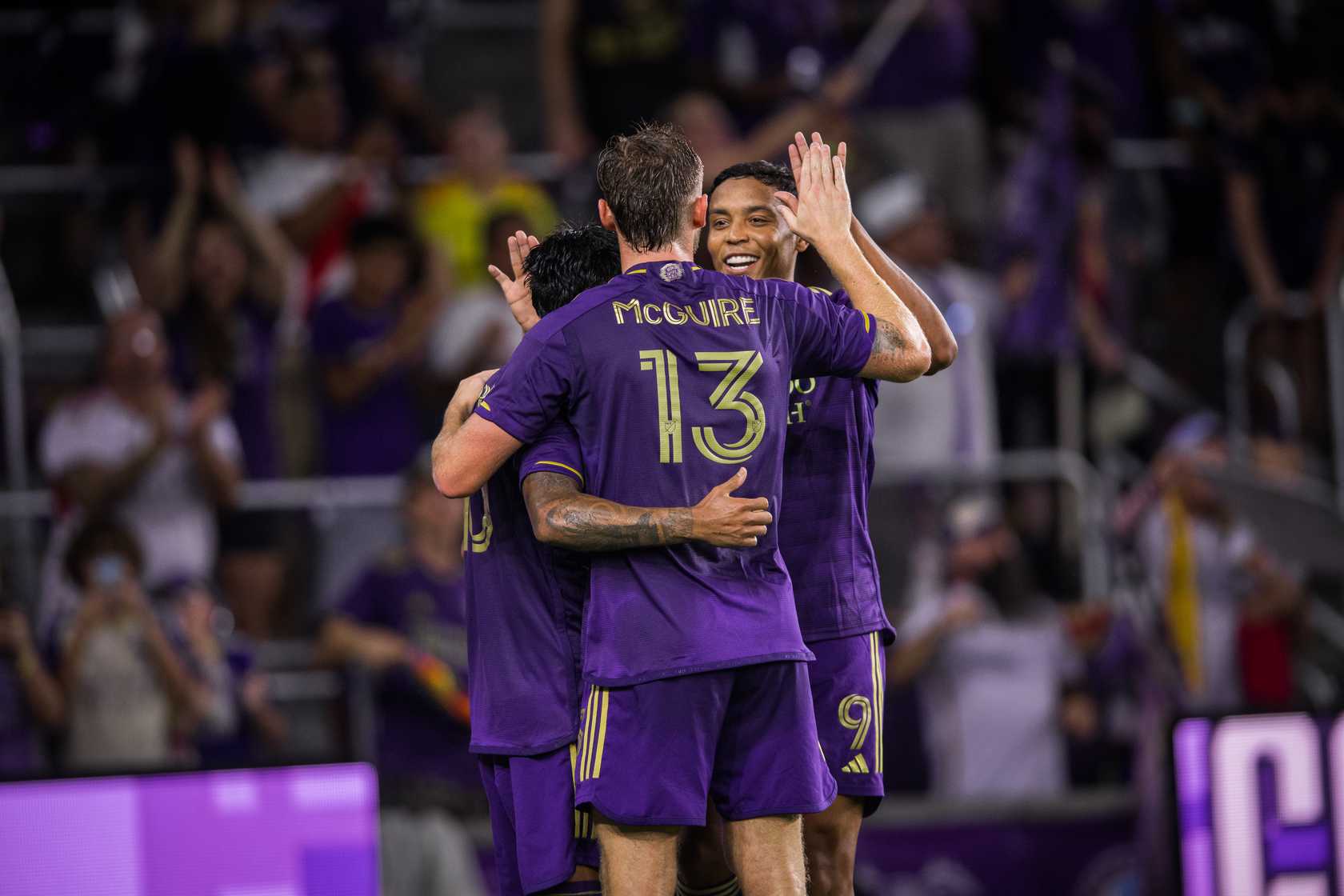
As noted in the recap of Orlando City’s first playoff game against Charlotte, the Lions scored more than one goal in a postseason playoff game for the first time in their MLS history. However, the Lions struggled to score in their seven other MLS playoff games, getting shut out twice and scoring one goal in the other five matches.
Even with the low-scoring output, the team advanced one round in 2020 and again in 2023, but the Lions have yet reach the conference final. A quick look at their performances in the regular season, as opposed to the playoffs, shows just how stark the offensive struggles have been (I am aware that points are not a thing in the playoffs, but just pretend that they were for comparison purposes, so even though Orlando City won in 2020 against New York City FC, it was a draw after 90 minutes that eventually went to penalties. As such, I called it a draw for average points purposes):

You can see from the data that while the team’s defense is averaging roughly the same amount of goals given up per game across all playoff games, the offense is down 56% in terms of average goals scored per game. I am not someone who believes in teams carrying history with them onto the field, as we are beaten over our heads with when the Yankees take the field in baseball and the announcers intimate that because the team won a lot of titles in the first half of the 20th century, that somehow matters in 2024 (altogether unsurprising note — I despise the Yankees), but in this situation I think it is worth looking at the last few years, because it is the same head coach and the team plays a similar formation and in very similar ways.
The players from 2020 are different than today (leading scorer: the Money Badger, Chris Mueller, and of 2024’s roster only two current players (Pedro Gallese and Robin Jansson) started in more than half of their games), but the reality from that year, and every year, is that the teams played all season long include teams at the top, middle, and bottom of the league, but the opponents in the playoffs include some in the middle but are mostly at the top.
With a higher caliber of opponent on the field, the Lions have performed similarly defensively but have struggled offensively, and the chart below shows some of the reasons why (red shading means the value is lower (even barely) in the playoffs as compared to during the regular season):

Insert usual disclaimer about non-penalty expected goals (npxG) being a metric that is more about shot locations than if the player really should have been expected to score, but regardless, while the red to white split in the table on the right is not drastic (11-9 red to white), some of the gaps in efficiency are large. The playoff stats on the right are full of small sample sizes, and as Billy Beane of Moneyball fame said “my (expletive) doesn’t work in the playoffs,” meaning that in small sample sizes, anything can happen, and season-long trends can disappear. The 2024 playoff stats, albeit through only one game, look good though, so perhaps this season will be the one when everything goes right offensively instead of wrong.
Whether the reason is offensive struggles, playing against better defenses, or some kind of mental block for playoff games, the reality is that prior to the home game against Charlotte on Sunday, Orlando City had never scored more than one goal in a playoff game. But, now the Lions have done that, and I do not want to take full credit, but it was my daughter’s first-ever game in attendance when they did so…I am taking full credit. (Sorry, actual players who played in the game.)
This year’s team scored the most regular-season goals of any Orlando City squad in the MLS era, and in my opinion, the Lions have the best collection of overall offensive talent of any team in club history, so much so that they bring three players off the bench (Duncan McGuire, Luis Muriel, and Nico Lodeiro) who combined for 37 goal contributions this season in MLS regular-season play. Now that the team has achieved one playoff game with at least two goals, the next offensive goal target will be multiple playoff games with multiple goals — hopefully starting as soon as in the match at Charlotte on Friday.
The last two seasons have been full of achievements for Orlando City in the team’s MLS era, and with two more wins (though let’s not get ahead of ourselves), the team would add another achievement to that list — the Lions’ first-ever trip to the conference final. Advancing in the playoffs does not require scoring goals (provided you hold your opponent scoreless too and win your shootouts), but scoring goals is fun, and fun is good (doctor’s orders, right Dr. Seuss?). And I believe that this team has the offensive ability to continue to have fun and advance in the upcoming weeks.
Vamos Orlando!
Lion Links
Lion Links: 10/31/24
Orlando City focused on Game 2, USWNT beats Argentina, U.S. loses in U-17 World Cup, and more.
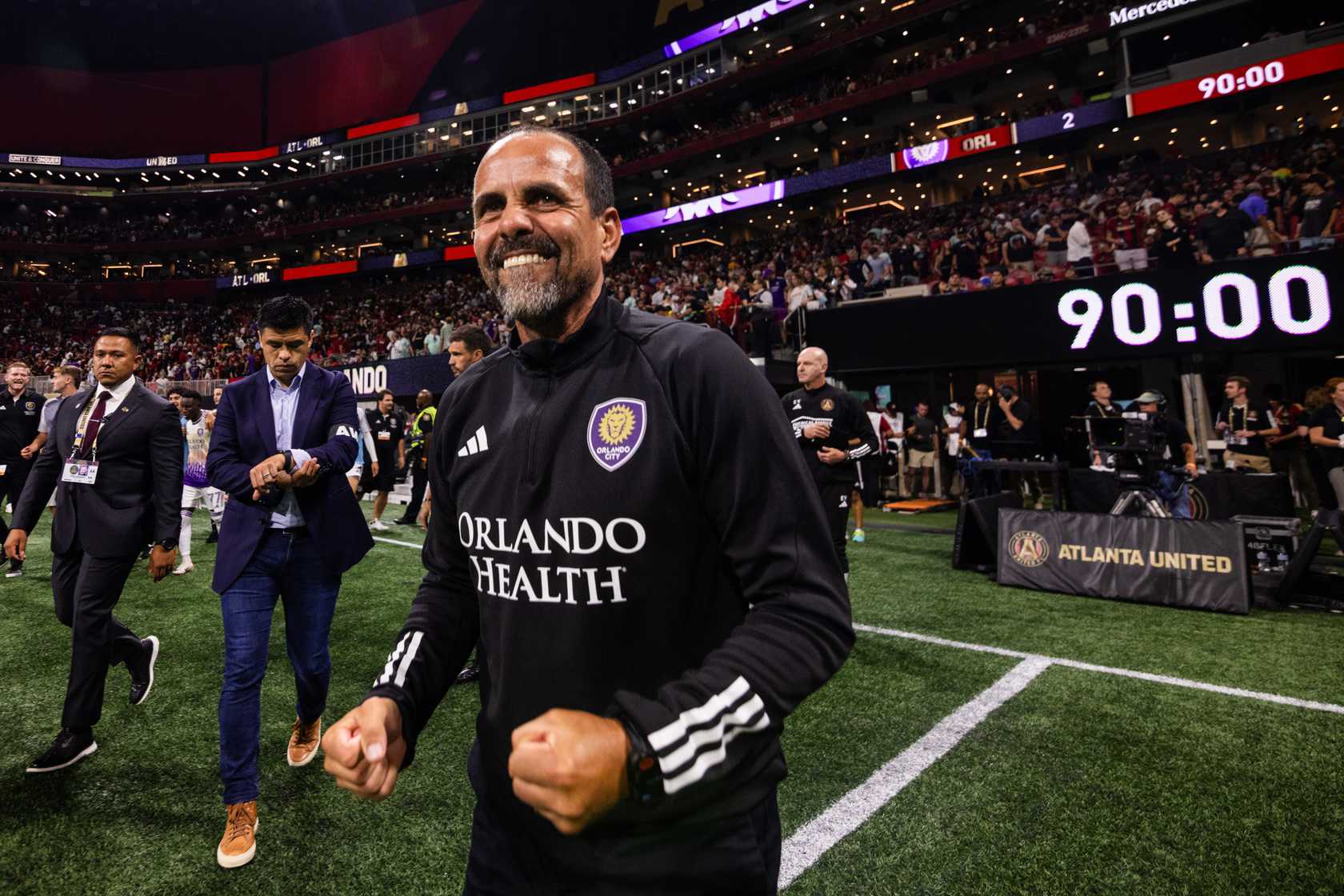
Happy Halloween! I don’t have any plans for the holiday beyond annoying my cat by dressing him up like a wizard for some photos. Scary movies aren’t exactly my thing either, but I hope you all have a fun time celebrating regardless. Before we dive into today’s links, let’s all wish a happy birthday to Orlando City Vice President of Soccer Operations and Technical Director Ricardo Moreira!
Lions Stay Focused Ahead of Playoff Match
Orlando City will aim to close out its playoff series with Charlotte FC on Friday when the two sides square off in North Carolina. The Lions may be riding high after a solid 2-0 win at home to start its playoff campaign, but Head Coach Oscar Pareja has the team focused on finishing the job to advance to the next round. Pareja spoke about how Orlando’s ability to react and solve problems is a strength and helped the Lions win the first game of the series.
As for Charlotte, MLSsoccer.com‘s Joseph Lowery has it as one of the more likely clubs to turn things around and force a Game 3. Charlotte will have to keep Facundo Torres and Martin Ojeda from running rampant if it wants that to happen. Orlando also won’t have to deal with Charlotte midfielder Pep Biel in Friday’s match, as the appeal for the Designated Player’s red card was rejected.
USWNT Shuts Out Argentina
The United States Women’s National Team closed out the international window with a 3-0 win over Argentina in Louisville. Naomi Girma got the scoring started in the 37th minute, nodding in an easy goal after some poor defending from Argentina for her first international goal. An own goal doubled the USWNT’s lead right before halftime, and then Girma secured her brace with another header in the second half. Goalkeeper Mandy Haught made her USWNT debut, making one save in the shutout. Orlando Pride defender Emily Sams did not start this time around, with Head Coach Emma Hayes choosing Eva Gaetino to start alongside Girma in the center of the U.S. defense. However, Sams did enter the game in the second half, coming on in the 70th minute. The USWNT will play its final games of the year when it travels to take on England on Nov. 30 and the Netherlands on Dec. 3 in a pair of tough friendlies.
U.S. Falls in U-17 World Cup Semifinal
The U-17 USWNT lost 1-0 to North Korea in the U-17 World Cup semifinals. After a scoreless first half, Ro Un-hyang scored a great goal to give North Korea the win. The U.S. struggled to get much going on offense and didn’t get a single shot on target in the match. There’s still a chance the U.S. can leave the Dominican Republic with silverware, as it will play for third place against either England or Spain on Sunday.
UEFA Invests in Women’s Soccer
In an effort to grow women’s soccer in Europe, UEFA has pledged $1.08 billion towards all levels of the sport over the next six years. Part of the organization’s goals is to double the number of fully professional national leagues and increase the number of professional players. The plan also includes developing more ways for girls and women to play, coach, and referee, starting at the grassroots level. Although this is a hefty amount of money devoted towards women’s soccer, there’s still plenty of work to do in regards to ensuring women can make a living from soccer.
Free Kicks
- The City Beautiful is looking good in celebration of both Orlando City and the Orlando Pride being in the postseason this year.
- MLS Save of the Year went to FC Dallas’s Maarten Paes for his double save to deny Gabriel Pec from the penalty spot. I still prefer Pedro Gallese’s acrobatic double save that was nominated, but this was still nice work from Paes.
- FC Cincinnati’s Luca Orellano won MLS Goal of the Year for his strike from 79.81 yards out to beat CF Montreal goalkeeper Jonathan Sirois on Aug. 31.
- Weston McKennie scored his first goal of the Serie A season by getting his head on the end of a nice cross from fellow American Tim Weah, who later scored the equalizer in Juventus’ 2-2 draw with Parma.
- Diego Chara will return for a 15th season with the Portland Timbers after signing a contract extension with the club through 2025, with an option for 2026 as well.
- Concacaf announced that next year’s Gold Cup final will take place at NRG Stadium in Houston on July 6.
- In its first game since Erik ten Hag’s firing, Manchester United scored four goals in the first half of a 5-2 win over Leicester City. Casemiro and Bruno Fernandes both bagged braces in the dominant display at home.
- Jamal Musiala had a hat trick in the first half of Bayern Munich’s 4-0 win against Mainz in the German Cup.
- Ryan Reynolds and Rob McElhenney have become co-owners of Wrexham Lager, the brewery that is also one of the team’s sponsors and was founded in 1882.
That’s all I have for you today. I hope you all have a happy Halloween and rest of your week!
Lion Links
Lion Links: 10/30/24
Orlando City prepares for Charlotte (again), the Pride ready for playoffs, Ballon d’Or issues, and more.
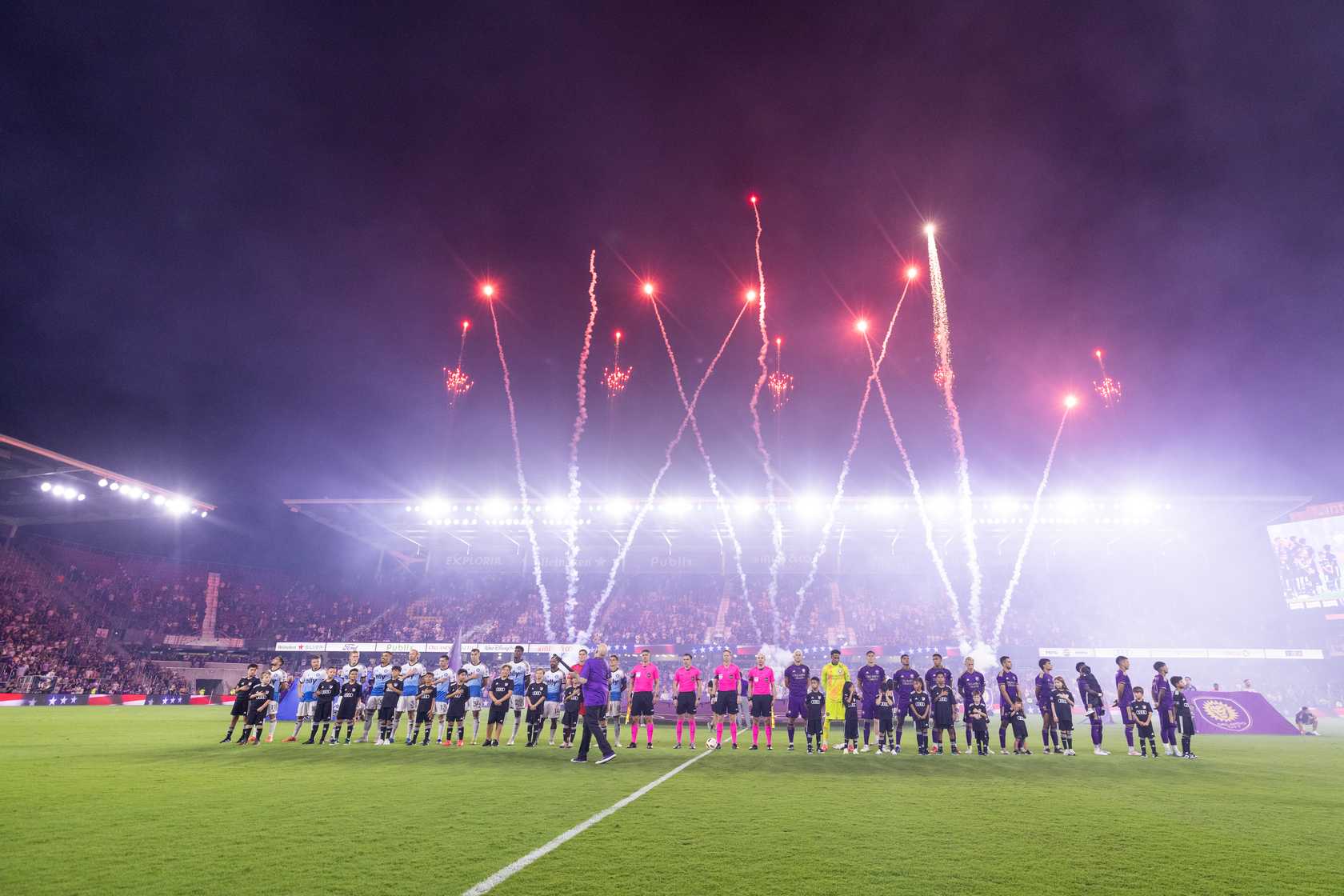
Welcome to Wednesday, Mane Landers. I hope you have your costume ready for tomorrow, and the candy ready for the kiddos. In addition to Halloween, it’s a big week for the club as Orlando City prepares for playoff match number two, and the Pride finish the regular season. For now, let’s get to the links.
Orlando City Ready for Charlotte, Part Deux
Orlando City is heading into the second match against Charlotte FC riding the good vibes of a 2-0 victory in the first match. Facundo Torres and company executed Oscar Pareja’s game plan to perfection and will look to do so again this Friday. The second match will pose a bigger challenge as this will be the North Carolina-based club’s first-ever home playoff match. The crowd will be big and loud in this must-win match for the home team.
Pride Await Playoff Opponent
We’ve known for weeks that the Orlando Pride will be the number one seed in the NWSL playoffs. What we don’t know is which team the Pride will be playing. If the standings remain the same after this weekend, it will be Bay FC. The other two possibilities are the Portland Thorns or the Chicago Red Stars.
Orlando’s Gone But Not Forgotten
There have been many professionals who have played for Orlando City and the Orlando Pride over the years. While they may no longer wear purple, we still like to keep track of their comings and goings. For example, former Orlando Pride forward Sydney Leroux has signed a new three-year contract that will see her end her career at Angel City FC. Likewise, former Orlando Pride goalkeeper Erin McLeod, has signed with Canadian Northern Super League side Halifax Tides FC.
In not-so-great news, former Orlando City striker Daryl Dike, has to endure yet another setback on his way back from injury for West Bromwich Albion. Dike suffered a mild hamstring issue in training with the first team. We wish him a speedy and full recovery.
The Ballon d’Or Problem
The Orlando Pride’s Marta was seemingly quite upset with Vinícius Júnior not getting the Ballon d’Or this year. Everyone is entitled to their opinion, but given Marta’s accomplishments, her opinion carries more weight than many others.
Of course that isn’t the only criticism being leveled at the award. The women’s side of the award has been treated with disdain and marginalized consistently over the years. This year was no exception. Given that the award ceremony took place during the women’s international break. Many nominees and winners for the various awards, including USWNT Head Coach Emma Hayes, were unable to attend. Given how fast the women’s game is growing, it’s time for those giving out the accolades to treat the women equally.
Free Kicks
- Christian Pulisic may be joined by USMNT teammate Johnny Cardoso at AC Milan. It’s just a rumor for now, given Tottenham Hotspur has first right of refusal for the Betis player.
- The USWNT plays Argentina tonight in a friendly match. You’ll want to watch this match as the Pride’s Emily Sams might get her second cap.
- The Libyan Football Federation is looking to overturn the sanctions suffered due to its boycott of an Africa Cup of Nations match against Nigeria.
- Manchester United’s interest in Sporting CP coach Rúben Amorim has been confirmed by the Portuguese club. Jeez guys, Erik Ten Hag’s seat isn’t even cold. Allow the rest of us to grieve his departure for a bit.
That will do it for today. I hope everyone has fun and stays safe tomorrow for Halloween. Also, remember to check back as we get you ready for the upcoming Orlando City and Orlando Pride matches. Vamos Orlando!
-
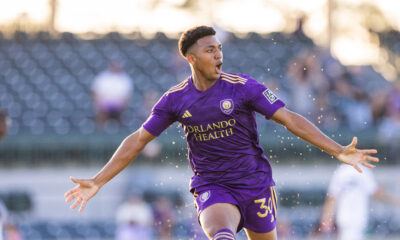
 Orlando City B2 weeks ago
Orlando City B2 weeks agoAlex Freeman Looks Ready to Make the Jump to MLS
-
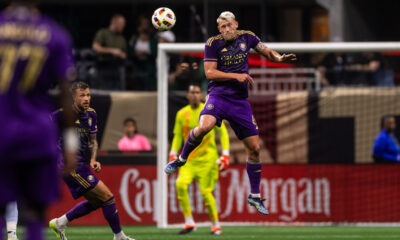
 Orlando City2 weeks ago
Orlando City2 weeks agoOrlando City vs. Atlanta United: Three Keys to Victory
-

 Orlando Pride2 weeks ago
Orlando Pride2 weeks agoHow the Orlando Pride Went 24 Matches Without a Loss
-
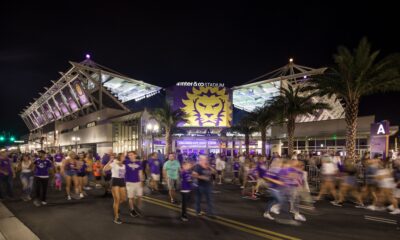
 Orlando City2 weeks ago
Orlando City2 weeks agoSecuring Home-Field Advantage is Vital for Orlando City
-
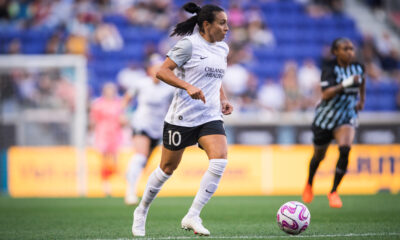
 Orlando Pride2 weeks ago
Orlando Pride2 weeks agoOrlando Pride vs. NJ/NY Gotham FC: Preview, How to Watch, TV Info, Live Stream, Lineups, Match Thread, and More
-
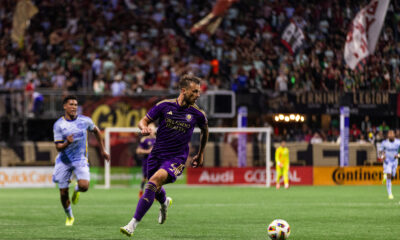
 Orlando City2 weeks ago
Orlando City2 weeks agoOrlando City vs. Atlanta United: Preview, How to Watch, TV Info, Live Stream, Lineups, Match Thread, and More
-
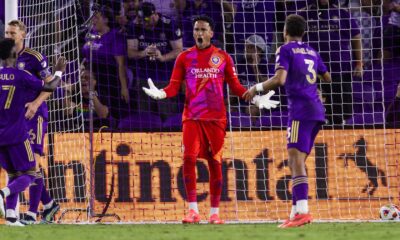
 Orlando City2 weeks ago
Orlando City2 weeks agoOrlando City vs. Atlanta United: Five Takeaways
-
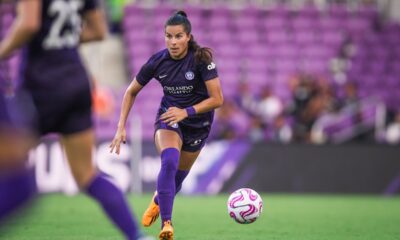
 Lion Links2 weeks ago
Lion Links2 weeks agoLion Links: 10/18/24


